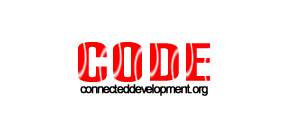The Federal Government has said that the adoption of National Action Plan (NAP) on Business and Human Rights remained key to effectively regulate business-related human rights violations and protection against environmental hazards.
The Executive Secretary, National Human Rights Commission (NHRC), Tony Ojukwu, said this Thursday when he received a delegation from the Connected Development (CODE) and OXFAM in Nigeria on advocacy visit over the challenges witnessed in host or oil-bearing communities.
- After years of darkness, 4 FCT villages connected to national grid
- Rural electrification: N1bn projects not connected, require maintenance
Ojukwu said the adoption of the NAP is mandated by the United Nations General Principles on Business and Human Rights demanding that countries should leverage on them to protect human rights in business.
“This is because there have been a lot of issues, as the business climate in Nigeria, so far has been one of making profits alone, without looking at the consequential effects on promotion and protection of human rights.
“This is not proper; now, the adoption of the NAP on business and human rights, obviously will improve the business climate. If human rights are protected, companies will have a better climate to do their business and make better decent profits not blood money,” Ojukwu said.
According to him, some parts of the country was experiencing gas flaring and soot which have lots of effects on the environment and health of Nigerians yet much is not being done.
Speaking earlier, the Chief Executive Officer, CODE, Mallam Hamzat Lawal, said the organisation highlighted some human rights violation and abuses from oil companies in oil producing or host communities leading to environmental degradation and health issues.
He said that the environment itself takes over 20 years to recover ecologically and that the soot would make people develop cancer and all these were human rights violation that needed to be checked and addressed.
“So, I am thinking about a tripartite collaboration between the NHRC, CODE and Oxfam, where we can document lesson share them engage government and hold these agencies to account to ensure proper regulation.
“This is because if we have proper regulation, then there would be less or no human rights violation. So, we need a stronger framework that highlights how we can jointly as civil society as human rights organisation and international partner, work together,” Lawal said.
On his part, the Project Coordinator, Fiscal Accountability for Inequality Reduction, Oxfam, Mr. Henry Ushie, said that there was need to engage more with companies to make them adhere to the rules and regulations of doing business.
According to him, this was because while some laws already existed in terms of protection, the companies had not quite been compliant in terms of respecting those laws.
“So, the campaign over time has been how do we ensure that these companies become compliant? If there are issues as a result of their operations at committee level or at any level in the entire value chain? How do we ensure that they remedy all of those those anomalies,” Ushie said.

 Join Daily Trust WhatsApp Community For Quick Access To News and Happenings Around You.
Join Daily Trust WhatsApp Community For Quick Access To News and Happenings Around You.


